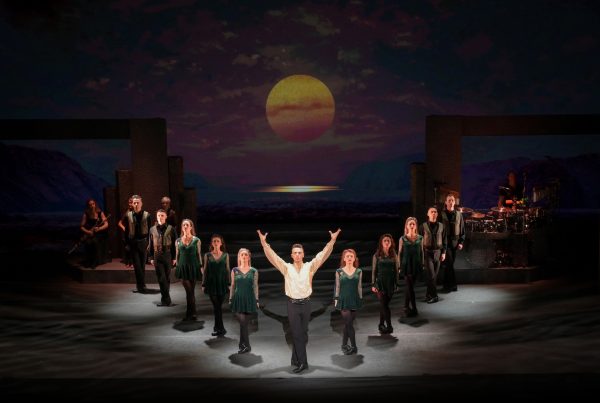Now that Delray Beach has found Old School Square for the Arts guilty, the city has issued an indictment.
On the consent agenda for Monday’s city commission meeting was a report by Internal Auditor Julia Davidyan finding the group out of compliance with its lease. Last month, Mayor Shelly Petrolia and commissioners Juli Casale and Shirley Johnson voted to terminate the group’s lease of the property that Old School Square for the Arts turned into Old School Square.
One might think that a finding of non-compliance would come before termination on the grounds of non-compliance. But Petrolia, Casale and Johnson ended the lease without having put the issue on the agenda. At the next meeting, with many Old School Square supporters ready to speak, Petrolia stated that the decision was final.
So Davidyan’s work seems like an after-the-fact cover story designed to justify termination. Davidyan concludes that Old School Square failed in multiple areas to submit complete documents on time.
Strategic plans? They were inadequate, Davidyan says. Annual reports? They might have been suitable for Old School Square’s annual request for community redevelopment agency money, Davidyan says, but they weren’t detailed enough for the lease. Outside audit reports? The latest one came after the March deadline, though Davidyan acknowledges that it’s “ongoing.”
The annual forms that non-profits must file with the IRS? The city didn’t get them, Davidyan says. Statements about Old School Square’s attempt to increase diversity of programming and board members? The city didn’t get them either, Davidyan says. And, yes, Old School Square did send information to the CRA, but those documents also were incomplete.

Ryan Boylston and Adam Frankel voted against termination. Boylston met with Davidyan and City Attorney Lynn Gelin to discuss the report.
Among other things, Boylston asked what standard Davidyan applied to determine that the strategic plans were inadequate. Most important, Boylston wanted to know if the city notified Old School Square each time a report didn’t arrive.
The response from Davidyan and Gelin, Boylston said, was, “It’s not our responsibility.” To which Boylston says, “You can’t have a student go through a semester without telling him he’s doing something wrong and then give him an F at the end.”
At Monday’s meeting, Casale insisted that the city had been trying to give Old School Square a chance to bring itself into compliance. If so, why did she, Petrolia and Johnson end the lease before Davidyan’s work was complete? Casale complained that Old School Square had stopped communicating with the city. The communication stopped after the city ended the lease.
“This doesn’t sound like an audit,” Boylston said, “It sounds like an investigation.”
BRIC development options?

Rocket sculpture at BRIC
When CP Group—formerly Crocker Partners—bought the Boca Raton Innovation Campus (BRIC), the company made clear that it would think big. The public soon may start to learn how big.
During Monday’s city council workshop meeting, Andrea O’Rourke said CP Managing Partner Angelo Bianco and CP’s attorney, Bonnie Miskel, had approached her with an idea. CP would make a presentation about the former IBM campus and seek thoughts about potential changes. CP would propose no specifics. In essence, the company would try to determine the council’s response to possible development scenarios.
As O’Rourke noted, CP has said that current zoning of the property would not accommodate its ambitions. Sometimes, landowners appear during public comment to test the water or seek information, but that format allows only five minutes.
BRIC contains 1.7 million square feet of office space. Architect Marcel Breuer designed the campus in the late 1960s for IBM, whose engineers designed the personal computer at the campus. Even a preliminary discussion of the property’s future can’t fit into a five-minute presentation.
It is ironic that Bianco used O’Rourke as his conduit. Six years ago, when Crocker Partners was a major landowner in Midtown, Bianco led the effort to secure city approval for zoning changes that could have allowed a makeover of the neighborhood east of Town Center Mall. O’Rourke led the opposition that at a January 2018 meeting effectively killed the idea.
Crocker Partners sued for damages, but the city prevailed. On Monday, Mayor Scott Singer noted that CP has “sued repeatedly” and worried that the city could walk into a legal trap by allowing such a presentation.
City Attorney Diana Frieser said council members would be safe if they discussed only “legislative changes.” Example: Would the council consider zoning that could allow residential development? CP has filed no development application, so council members couldn’t prejudice themselves with regard to a specific project.
Andy Thomson finally said, “I think we should invite (CP) for a workshop as soon as possible.” The others agreed.
Historical Society may get funding

Also on Monday, council members appeared ready to give more money to the Boca Raton Historical Society for renovation work at the city’s old town hall, which also is the society’s museum.
I wrote recently about the project, which began last summer. Because the city owns the property, the council awarded the society a $650,000 grant for plumbing and structural upgrades. The society paid for the new exhibits and oversaw the project.
Because of change orders, the infrastructure work cost nearly $600,000 more than budgeted. The society paid the bills and asked for a second grant of $585,000.
An odd discussion followed. City Manager Leif Ahnell said the money “in no way, shape or form would be a reimbursement.” But it sounded very much like a reimbursement under a different name.
Council members asked whether the work might have cost less if the city had done it. Ahnell and Deputy City Manager Mike Woika stated the obvious: There’s no way to tell. They could verify only that the society is correct about how much extra the project cost.
Singer expressed concern about setting a precedent that other non-profits could follow. But the council agreed that Ahnell should draft a second grant.
GL Homes deals a blow to Ag Reserve
I wrote last May about the county commission allowing the Lake Worth Drainage District to sell undevelopable land to GL Homes, thus allowing the developer to build homes that rules in the Agricultural Reserve Area normally would not allow.
The county’s legal staff advised the commission to reject the drainage district’s request. The five who supported the request claimed that a legal technicality forced them to go along, even if they didn’t like it. Two commissioners who voted yes—Greg Weiss and Robert Weinroth—are up for re-election next year and had received campaign contributions from donors with ties to GL Homes and the drainage district.
From now on, the commission plans to close the loophole and not permit the sale of rights-of-way. That change, however, will not undo the damage to efforts to protect the Agricultural Reserve from development that could drive out farming. In 1999, voters approved $100 million in bonds to restrict development.
Golf course deal nearing closure
On tonight’s Boca Raton City Council agenda is the 16th—and perhaps final —amendment to the agreement for GL Homes to buy the city’s municipal golf course.
The company and the city have repeatedly extended the inspection period because of issues related to the property, north of Glades Road and west of the Florida Turnpike. Under this amendment, the inspection period ends on Oct. 15. One day later, GL will owe the city $7 million in non-refundable deposits toward the sale price of $65.75 million. Closing is scheduled for Nov. 1.







